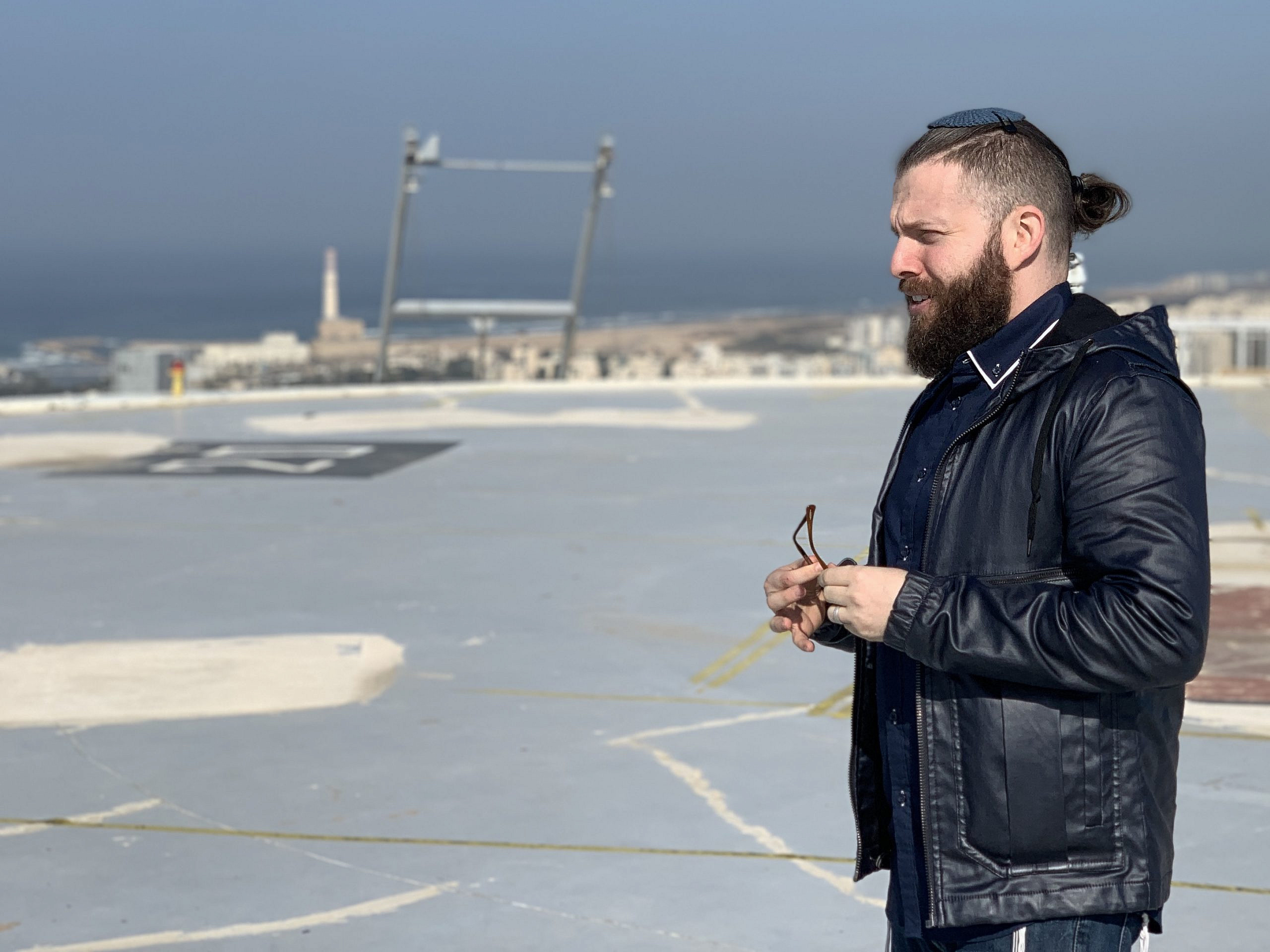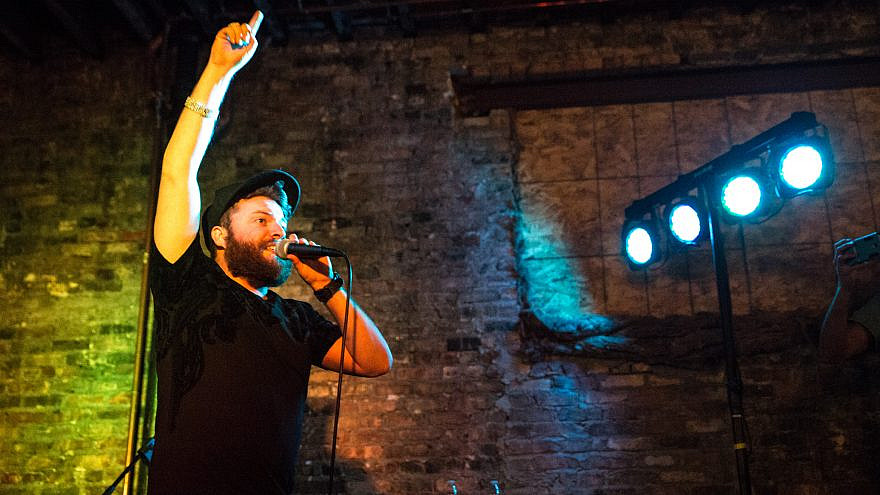Charles Goldberg, a Lubavitcher Chassid, refers to his latest project, “Recovery,” as “a video that can save lives.”
“I’m a clinical psychotherapist, but in order to ensure my mom is proud of me, I’m also a professional rapper,” Goldberg, 35, who lives and practices in Cherry Hill, N.J., and whose stage name is “HARDCHARLiE,” told JNS.
Goldberg specializes in mental health and addiction, and many of his clients are Chassidim and their children. “This population—my family—hits particularly close to home,” he said. “The notion that there are Jews suffering from this debilitating disease is unacceptable to me.”
So the therapist partnered with videographer Dov Ber Gurewicz and social-media star Meir Kalmanson (Meir Kay, YouTube following 324,000), who plays the protagonist. Goldberg told JNS that the video both spotlights addiction in the Jewish community and avoids hyperbole and cliché.
“It is an accurate depiction of what alcoholism and recovery look like within the family system,” he said.
‘The opposite of addiction is connection’
Goldberg told JNS that the song combines the viewpoints of both addicts and therapists. “I took the real-life perspectives of alcoholics I’ve worked with, as well as my own experiences in addiction, and captured them lyrically,” he said. “This message can be life-changing to so many people, and it is presented through a medium that is accessible and relatable to basically everyone on the planet.”
Scientific research with rats and addictive substances has shown that community is an important factor in fighting addiction. The more rats were given options other than addictive substances and the more they had other rats around, the better their chances of survival, according to Goldberg.
“The opposite of addiction is not sobriety. The opposite of addiction is connection,” he told JNS. “This is why a Chabad House or a Jewish community is literally everything to keeping Jews safe. To this day, there has never been anything found to be more effective at helping people get sober than a 12-step fellowship like Alcoholics Anonymous and Narcotics Anonymous.”
The meetings themselves aren’t transformative, but the healing happens due to the relationships, according to Goldberg.
“Where else can a person go to find other addicts like themselves and find acceptance? Where else can Jews go to ideally find acceptance other than a Jewish community—a Chabad house or a shul,” he said.

The right form for this message was rap, said Goldberg: “It is the only musical genre that requires no talent whatsoever to create. This is both a good thing and a bad thing.” The barrier to entry is low, he noted, but the lyrics can be very hateful and violent.
“Rap is also great because there are more lyrics in a rap song than in any other genre,” he said. “This allows for deep meaning and stories to be conveyed in a cohesive, direct manner that other genres of music lack space for.”
It’s also a religious experience—imitatio Dei, or following the Divine example—to the rapping psychotherapist.
“God used words to create and heal. Human beings, who are made in God’s image, have the same capacity to speak things into creation,” he said. “Our words hold immense transformative power and utilizing them in a rap allows for a deeper impact than other forms of music.”


























